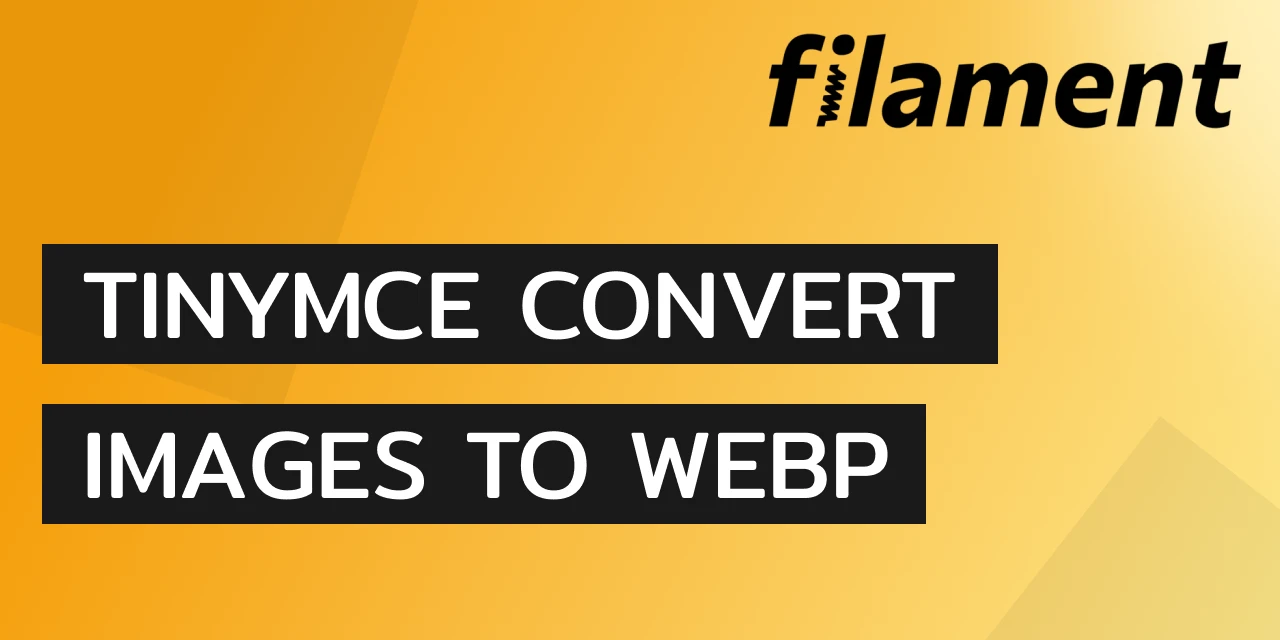Convert Uploaded Images to WebP Format in TinyMCE with FilamentPHP
Explore how to enhance your image handling in FilamentPHP and TinyMCE by converting uploaded images to the WebP format.

April 29, 2024
If you've ever used the TinyMCE Editor with the mohamedsabil83/filament-forms-tinyeditor package in FilamentPHP, you may have encountered warnings from Google PageSpeed about image optimization.
You can address this issue by manually converting images to WebP before uploading them, or you can automate the process using a simple trick.
In this example, we'll use Imagick, but you can also achieve this with GD.
use Mohamedsabil83\FilamentFormsTinyeditor\Components\TinyEditor;
use Livewire\Features\SupportFileUploads\TemporaryUploadedFile;
use Imagick;
TinyEditor::make('body')
->saveUploadedFileAttachmentsUsing(function (TemporaryUploadedFile $file) {
$isImage = in_array($file->getMimeType(), ['image/jpeg', 'image/png', 'image/gif']);
if(extension_loaded('imagick') && $isImage) {
$imagick = new Imagick($file->getRealPath());
$imagick->setImageFormat('webp');
$filename = Str::random(64) . '.webp';
$storePath = storage_path('app/public') . '/' . $filename;
$imagick->writeImage($storePath);
return Storage::url("/{$filename}.webp");
}
return $file->store('', 'public');
})
It will skip if the file is not an image or already in WebP format. You can customize the $storePath variable depending on your requirements.